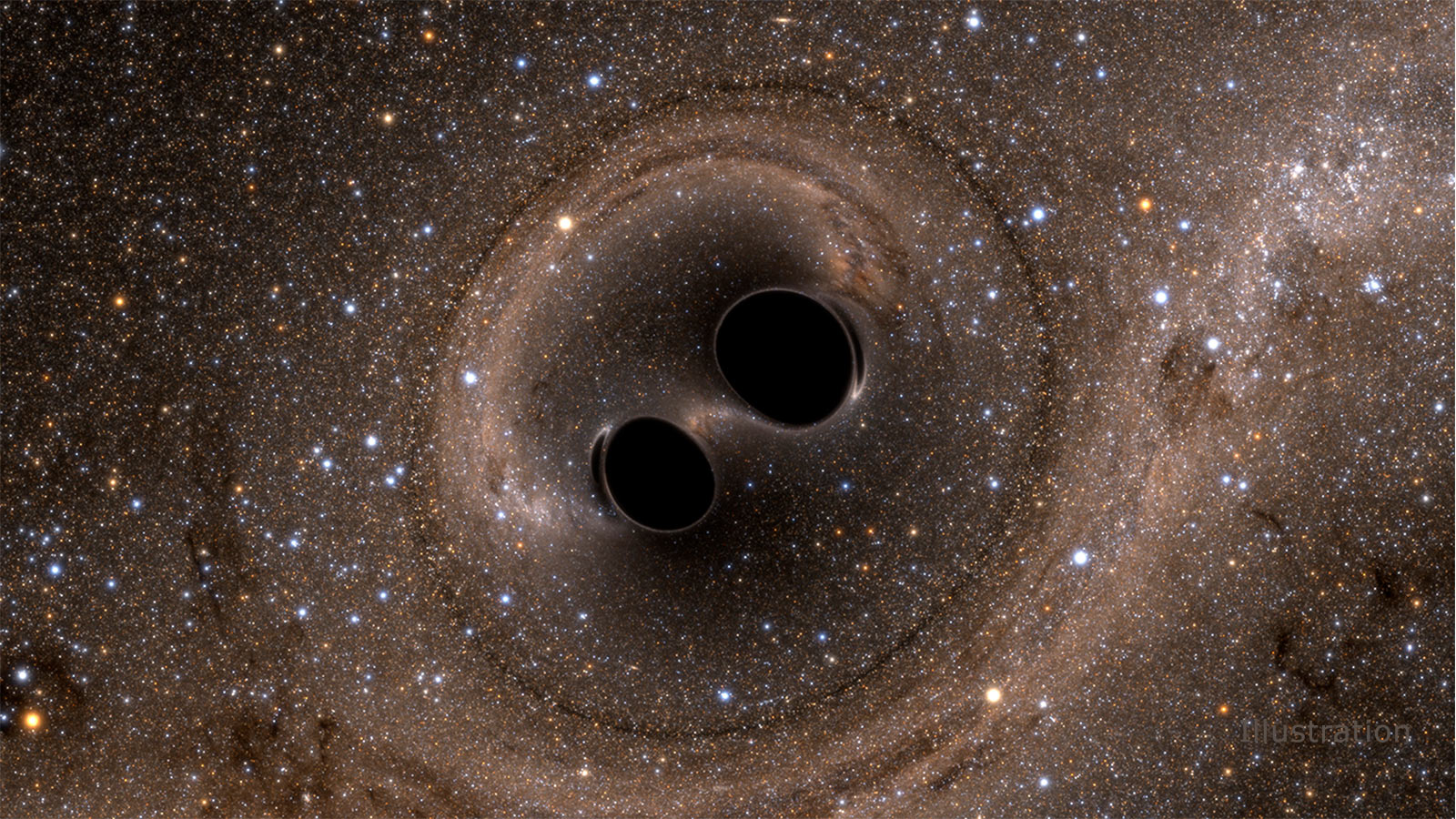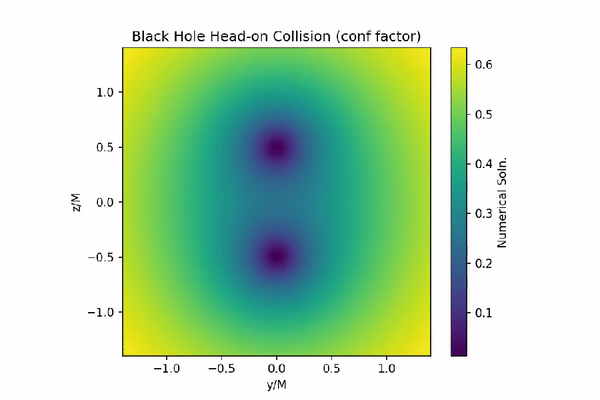Make Your Own Gravitational Waves with 'BlackHoles@Home'
Now you can smash black holes together in the comfort of your living room.

Scientists want your help studying black holes — and you can do it from your own home!
When black holes collide, they disrupt the fabric of space-time and send ripples through the cosmos known as gravitational waves. By measuring those waves, scientists can learn more about the properties of the black-hole merger that created them. However, interpreting that data requires a tremendous amount of computing power. That's where citizen scientists come in.
A team of researchers at West Virginia University is recruiting volunteers to help advance our understanding of black holes by running collision simulations from home on their personal computers. The collaborative project, named "BlackHoles@Home," aims to reduce the cost of studying gravitational waves from black hole collisions by avoiding having to pay for access to supercomputers — enormous computing machines that can do up to hundreds of quadrillions of calculations per second but can be expensive to rent.
Related: 4 Gravitational-Wave Detections Include Largest, Most Distant Black Hole Crash Ever
BlackHoles@Home is "an in-development volunteer computing project in which we are going to be enlisting large numbers of the general public to donate their spare CPU cycles to advance very important research into gravitational waves," Zachariah Etienne, a professor of mathematics at West Virginia University and leader of the BlackHoles@Home project, said during a meeting of the American Physical Society in Denver on April 15.
Gravitational waves "encode critically important information about black holes," Etienne said, "but extracting the information about the black holes themselves, maximizing the science product from their detection — from these hard-fought observations — is a really tough thing to do." This involves comparing observations, or the "wiggles" in space-time, with hundreds of millions of theoretical predictions that are based on the mathematical solutions to Einstein's equations of general relativity. This field of physics is known as numerical relativity, and researchers typically use supercomputers to do it.
"To date these simulations have been entirely performed on supercomputers," Etienne said. "As a result of the computational expense, to date only about 3,000 theoretical predictions have been generated — and that's over the span of 14 years — despite enormous efforts to grow these theoretical prediction catalogs." BlackHoles@Home aims to create "tens to hundreds of millions" of those theoretical gravitational- waveform predictions, which can be used to better analyze the observational data collected during black hole collisions.
Breaking space news, the latest updates on rocket launches, skywatching events and more!
"As our gravitational wave detectors become more sensitive, we're going to need to greatly expand our efforts to understand all of the information encoded in gravitational waves from colliding binary black holes," Etienne said in a statement. "We are turning to the general public to help with these efforts, which involve generating unprecedented numbers of self-consistent simulations of these extremely energetic collisions. This will truly be an inclusive effort, and we especially hope to inspire the next generation of scientists in this growing field of gravitational wave astrophysics."
To find out how you can join the BlackHoles@Home project, visit blackholesathome.net. That website contains more detailed instructions and tutorials to help you get started with your black hole simulations.
- LIGO Is Up and Running Again and Already Spotted Two Possible Black Hole Mergers
- This New AI Program Could Speed Up the Search for Gravitational Waves
- How Do Particles Escape Black Holes? Supercomputers May Have the Answer
Email Hanneke Weitering at hweitering@space.com or follow her @hannekescience. Follow us on Twitter @Spacedotcom and on Facebook.

Hanneke Weitering is a multimedia journalist in the Pacific Northwest reporting on the future of aviation at FutureFlight.aero and Aviation International News and was previously the Editor for Spaceflight and Astronomy news here at Space.com. As an editor with over 10 years of experience in science journalism she has previously written for Scholastic Classroom Magazines, MedPage Today and The Joint Institute for Computational Sciences at Oak Ridge National Laboratory. After studying physics at the University of Tennessee in her hometown of Knoxville, she earned her graduate degree in Science, Health and Environmental Reporting (SHERP) from New York University. Hanneke joined the Space.com team in 2016 as a staff writer and producer, covering topics including spaceflight and astronomy. She currently lives in Seattle, home of the Space Needle, with her cat and two snakes. In her spare time, Hanneke enjoys exploring the Rocky Mountains, basking in nature and looking for dark skies to gaze at the cosmos.

